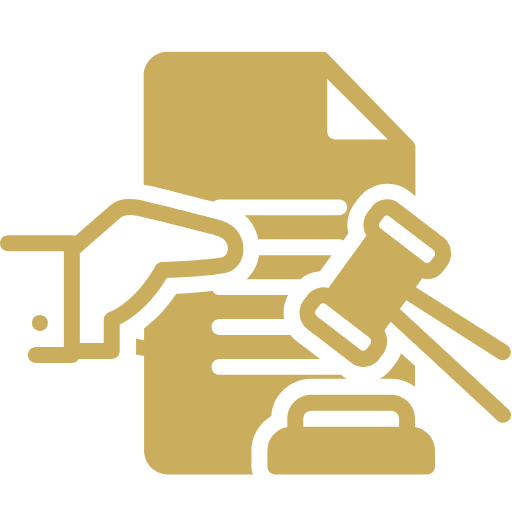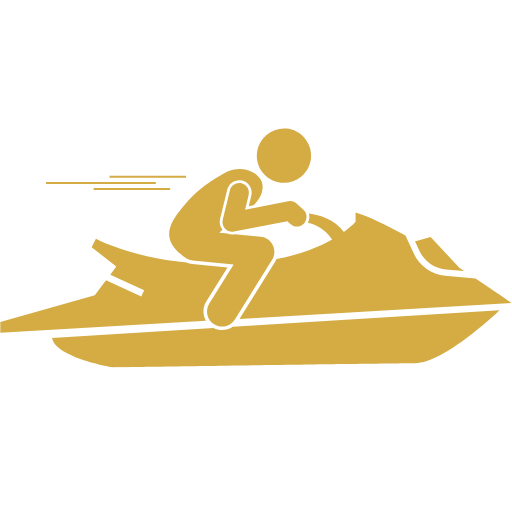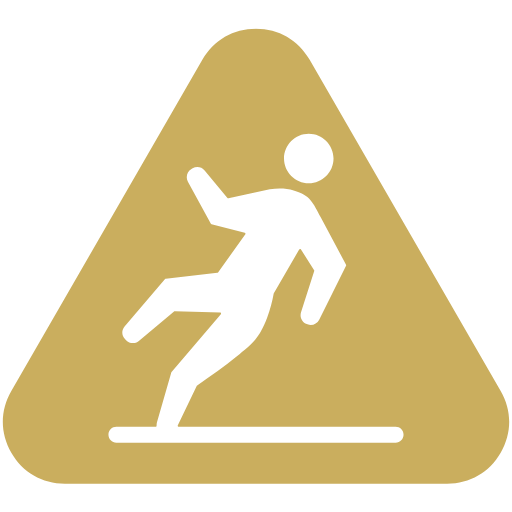FAQs
If you’re injured in a store, every step you take afterward can affect your case. Here’s what to do — and what not to do:
Do:
- Report the incident to store management immediately. Ask for an incident report.
- Take photos of the scene — the spill, the lighting, the area where you fell.
- Get witness contact information.
- Seek medical treatment right away, even if injuries seem minor.
- Call a lawyer as soon as possible. Stores often erase surveillance footage within days.
Don’t:
- Don’t sign anything or give recorded statements to the store or its insurer.
- Don’t downplay your injuries or “walk it off.”
The sooner you contact an attorney, the better we can preserve evidence and protect your rights.
At Marko Law, we’ve recovered significant verdicts for victims hurt in retail stores and shopping centers across Michigan. We know how to prove negligence and hold these corporations accountable.
To win a slip-and-fall or premises liability case in Michigan, you need to prove negligence — that the store failed to take reasonable care to prevent harm.
Here’s what that usually involves showing:
- The store created or knew about a dangerous condition (like a spill or broken tile).
- The store failed to fix it or warn customers in a reasonable time.
- That failure directly caused your injury.
Evidence can include:
- Surveillance video footage
- Witness statements
- Incident reports or cleaning logs
- Medical records linking your injuries to the fall
Insurance companies often try to argue that the danger was “open and obvious,” but Michigan law doesn’t automatically protect them — especially when conditions were inherently unsafe (like clear liquid on shiny tile).
At Marko Law, we know how to dig deep to uncover the evidence stores hope you’ll never find. We’ve taken on corporate lawyers — and beaten them — in courtrooms across Michigan.
Yes, you can—if the store knew or should have known about the hazard and didn’t fix it or warn customers. Under Michigan premises liability law, grocery stores must keep aisles safe for shoppers.
You may have a claim if:
- The floor was wet from a spill or melted ice without warning signs
- Staff ignored the danger for too long
- The store’s maintenance procedures were careless or inadequate
Falls in grocery stores often lead to fractures, spinal injuries, or head trauma. Even “minor” falls can have lasting effects.
Our firm has taken on big-name grocery chains and retail corporations that failed to protect their customers. We know their tactics—and we know how to win.
Slip and falls in public parks often involve government liability, so act fast and smart:
- Report the fall to park staff or local authorities immediately.
- Document the scene – take photos of the hazard (ice, broken pavement, uneven walkways).
- Get medical help – even minor injuries can become serious.
- Identify witnesses – get names and contact info.
- Call Marko Law – cases against public entities have tight deadlines.
Michigan’s government immunity laws make these cases tough—but not impossible. You need a lawyer who’s battled cities and counties and won.
Step 1: Document everything. Take photos of the hazard (spilled liquid, torn mat, etc.). Get witness names. Report it to the store manager.
Step 2: Seek medical care, even if you think you’re okay. Injuries like concussions, spinal damage, or torn ligaments may not show symptoms immediately.
Step 3: Call a personal injury attorney ASAP. In Michigan, premises liability law holds businesses accountable for injuries if they:
- Knew or should’ve known about the hazard,
- Failed to fix it or warn customers,
- And you were lawfully on the property.
Stores often hide behind the "open and obvious" defense. We know how to fight that.
Don’t talk to insurance adjusters until you speak with a lawyer.
If you slipped, tripped, or fell because someone didn’t maintain their property—you could be entitled to real compensation.
You may recover damages for:
- Medical bills (ER visits, surgery, therapy)
- Lost wages if you can’t work
- Pain and suffering
- Future care costs
- Loss of enjoyment of life
And if your fall happened at work, additional rights apply under the Michigan Workers' Disability Compensation Act.
Property owners have a duty to keep their spaces safe. If they didn’t salt icy steps, fix broken stairs, or warn you about wet floors—you may have a solid case.
🔎 We’ll investigate what they knew, when they knew it, and why they didn’t fix it.
Not every fall equals a lawsuit. But if your fall was caused by negligence, you may have a claim.
Ask yourself:
- Was there a dangerous condition like ice, poor lighting, broken steps, or spilled liquid?
- Did the property owner know—or should they have known—about it and fail to fix it?
- Did it happen in a public or commercial space, like a store, restaurant, or apartment complex?
Michigan law requires property owners to keep spaces “reasonably safe”. If they didn’t—and you were seriously hurt—they could be on the hook.
Slip and fall cases are hard-fought—especially in winter. That’s why you need a trial team who’s ready to go the distance.
Your medical bills may be covered after a slip and fall accident in Michigan, depending on the circumstances. If another party is found liable for your injuries, their insurance company may be responsible for compensating you for medical expenses. This coverage could include:
- Hospital bills
- Doctor's visits
- Diagnostic tests
- Prescription medications
- Physical therapy
Multiple parties could potentially be held responsible for a slip and fall accident in Michigan, depending on the circumstances. These parties may include:
- Property owners: Those who own or occupy the premises where the accident occurred have a duty to maintain reasonably safe conditions for visitors.
- Property managers or tenants: If they were aware of the hazardous condition or had control over the property's maintenance.
- Contractors or maintenance companies: If they were responsible for creating or failing to address the hazard.
After a slip and fall accident in Michigan, the first priority is your safety and well-being. If you're able, here are some crucial steps to take right away:
- Seek medical attention: Even if your injuries seem minor, it's essential to get checked out by a healthcare professional.
- Document the scene: Take photos or videos of the accident site, including the hazard that caused your fall, any visible injuries, and the surrounding area.
- Report the incident: Notify the property owner, manager, or staff about the accident. Make sure to get their contact information and any incident reports they fill out.
- Gather witness information: If anyone saw the accident, obtain their names and contact details. Their testimony could be valuable later.
Gathering evidence at the scene of a slip and fall accident is critical for building a strong case. Here's what you should try to collect:
- Photographs or videos of the hazard that caused your fall, such as a wet floor, icy sidewalk, or uneven pavement.
- Images of any visible injuries you sustained.
- Contact information for witnesses who saw the accident.
- Any incident reports filled out by the property owner or manager.
- Documentation of your medical treatment, including bills, prescriptions, and doctor's notes.
Even if the property owner claims they weren't aware of the hazardous condition that caused your slip and fall accident in Michigan, they may still be held liable under certain circumstances. Property owners have a duty to regularly inspect their premises for potential hazards and address any dangerous conditions they discover or should have discovered through reasonable diligence.
If it can be demonstrated that the property owner failed to fulfill this duty, they may be found negligent regardless of their actual knowledge of the specific hazard. Additionally, if the hazardous condition existed for an extended period without being addressed, the property owner may be deemed to have constructive knowledge of it.
Your attorney can help investigate the circumstances of the accident and gather evidence to establish the property owner's liability, even if they claim ignorance of the hazard.
If a slip and fall accident occurs in a rented property in Michigan, liability may fall on the property owner, tenant, or both, depending on the terms of the lease agreement and the circumstances of the accident.
- Property owner's responsibility: The property owner may be responsible for maintaining common areas and ensuring that the premises meet certain safety standards, regardless of who occupies the rental unit.
If a slip and fall accident happens at work in Michigan, you may be eligible for workers' compensation benefits to cover your medical expenses and a portion of your lost wages, regardless of fault. Workers' compensation is a no-fault insurance system designed to provide benefits to employees injured on the job, regardless of who was responsible for the accident.
However, if your slip and fall accident was caused by a third party, such as a negligent property owner or contractor, you may also have the right to pursue a separate personal injury claim against that party to recover additional damages, such as pain and suffering or punitive damages.
It's essential to report your slip and fall accident to your employer as soon as possible and consult with a personal injury attorney who can help you navigate the workers' compensation process and explore any additional legal options available to you.
If a slip and fall accident in Michigan aggravated a pre-existing medical condition, you may still be entitled to compensation for the worsening of your condition. However, proving the extent of the aggravation and its connection to the accident can be challenging. It's crucial to provide medical evidence documenting the progression of your condition following the fall, as well as testimony from healthcare professionals.
Your attorney can help gather the necessary evidence and advocate for your rights to compensation for the exacerbation of your pre-existing condition.
If you've been injured in a slip and fall accident in Michigan, you may be entitled to various types of compensation, including:
- Medical expenses: Coverage for costs related to emergency treatment, hospital stays, surgeries, medications, rehabilitation, and ongoing care.
- Lost wages: Reimbursement for income lost due to missed work during your recovery period.
- Pain and suffering: Compensation for physical pain, emotional distress, and loss of enjoyment of life caused by the accident.
- Property damage: Reimbursement for any personal belongings damaged in the fall, such as clothing or electronic devices.
It's generally not advisable to accept a settlement offer from the insurance company without consulting an attorney first. Insurance companies often try to minimize their payouts by offering low settlements early in the claims process, before the full extent of your injuries and damages is known.
By accepting a settlement without legal guidance, you risk settling for an amount that may not fully cover your current and future expenses related to the slip and fall accident. An experienced personal injury attorney can assess the value of your claim, negotiate with the insurance company on your behalf, and ensure that you receive fair compensation for your injuries and losses.
The time it takes to settle a slip and fall case in Michigan can vary widely depending on various factors, including the complexity of the case, the extent of your injuries, and the willingness of the parties to negotiate.
Some slip and fall cases may be resolved relatively quickly through settlement negotiations, while others may require litigation and go to trial, which can significantly lengthen the process. On average, slip and fall cases can take anywhere from several months to a few years to reach a resolution.
It's essential to have realistic expectations about the timeline and to work closely with your attorney to navigate the legal process efficiently and effectively.
In Michigan, the statute of limitations for filing a slip and fall claim is generally three years from the date of the accident. However, it's crucial not to delay in taking action. Evidence can deteriorate, memories fade, and witnesses may become harder to locate over time. Contacting a personal injury attorney as soon as possible can help ensure you meet all necessary deadlines and preserve your rights to compensation.
Fault in a slip and fall case in Michigan is typically determined based on the legal concept of negligence. To establish negligence, you must prove the following elements:
- Duty of care: The property owner or occupier owed you a duty to maintain reasonably safe conditions on their premises.
- Breach of duty: The property owner or occupier failed to fulfill this duty by allowing a hazardous condition to exist.
- Causation: The hazardous condition directly caused your slip and fall accident and resulting injuries.
A lawyer can provide invaluable assistance with your slip and fall case in Michigan by:
- Investigating the circumstances of the accident to determine liability and identify all potentially responsible parties.
- Gathering evidence, such as witness testimony, surveillance footage, and expert opinions, to support your claim.
- Calculating the full extent of your damages, including medical expenses, lost wages, pain and suffering, and future care needs.
- Negotiating with insurance companies on your behalf to seek fair compensation for your injuries and losses.
Yes, in most cases, you'll need to prove the property owner's negligence to win a slip and fall case in Michigan. Negligence refers to the property owner's failure to take reasonable care to maintain safe conditions on their premises. To establish negligence, you typically need to demonstrate that:
- The property owner owed you a duty of care to keep the premises reasonably safe.
- They breached this duty by either creating a hazardous condition or failing to address one.
- Their breach of duty directly caused your slip and fall accident and resulting injuries.
Yes, you can potentially sue if you slipped and fell on a sidewalk or parking lot in Michigan, depending on the circumstances. Property owners, including municipalities and businesses, have a duty to maintain reasonably safe conditions on their premises, which may include sidewalks and parking lots.
However, suing for injuries sustained on public property can be more complex than suing a private property owner. Governmental entities may have sovereign immunity protections or specific procedures for filing claims, which can affect your ability to recover compensation. Consulting with a knowledgeable personal injury attorney is crucial for understanding your legal options in these cases.
If a slip and fall accident resulted in the loss of a loved one in Michigan, you may have the right to file a wrongful death lawsuit against the party or parties responsible for the accident. Wrongful death claims allow surviving family members to seek compensation for damages such as:
- Medical expenses incurred before the loved one's passing
- Funeral and burial expenses
- Loss of the deceased person's income and financial support
12. Can I still file a claim if I was partially at fault for the slip and fall accident?
Yes, you may still be able to file a claim for a slip and fall accident in Michigan even if you were partially at fault. Michigan follows a comparative negligence system, which means that your compensation may be reduced proportionally based on your degree of fault.
For example, if you were found to be 20% at fault for the accident, your total compensation award would be reduced by 20%. However, as long as you were not more than 50% at fault, you can still recover damages.
It's essential to consult with a personal injury attorney to assess your case and understand how your degree of fault may impact your ability to recover compensation.
Yes, you can file a slip and fall claim against a government entity in Michigan, but there are specific procedures and limitations that apply when suing governmental entities.
- Notice requirements: Before filing a lawsuit against a government entity, you typically need to provide written notice of your claim within a certain time frame, often within 120 days of the accident.
In Michigan, there are no statutory limits on the amount of compensation you can receive for a slip and fall accident. The amount of compensation you may be awarded will depend on various factors, including the severity of your injuries, the extent of your financial losses, and the circumstances of the accident.
However, it's essential to be aware that insurance policy limits and the financial resources of the at-fault party may impact the amount of compensation you can recover. An experienced personal injury attorney can help you assess the value of your claim and pursue maximum compensation on your behalf.

Other Practice Areas
Tell us about your legal situation today.
Marko Law Will Give You A Voice
At Marko Law, we don’t just take cases — we take a stand. Whether you're facing an injury, injustice, or outright negligence, our team fights like it’s personal — because to you, it is.
- Over $500 Million recovered for our clients
- Proven track record in civil rights, personal injury & workplace justice
- Free, confidential consultations — you don’t pay unless we win
- Based in Detroit, trusted across Michigan
Ready to make your voice heard?
We’re not here to play games. We’re here to win.


.png)
















.png)




.png)



.png)








